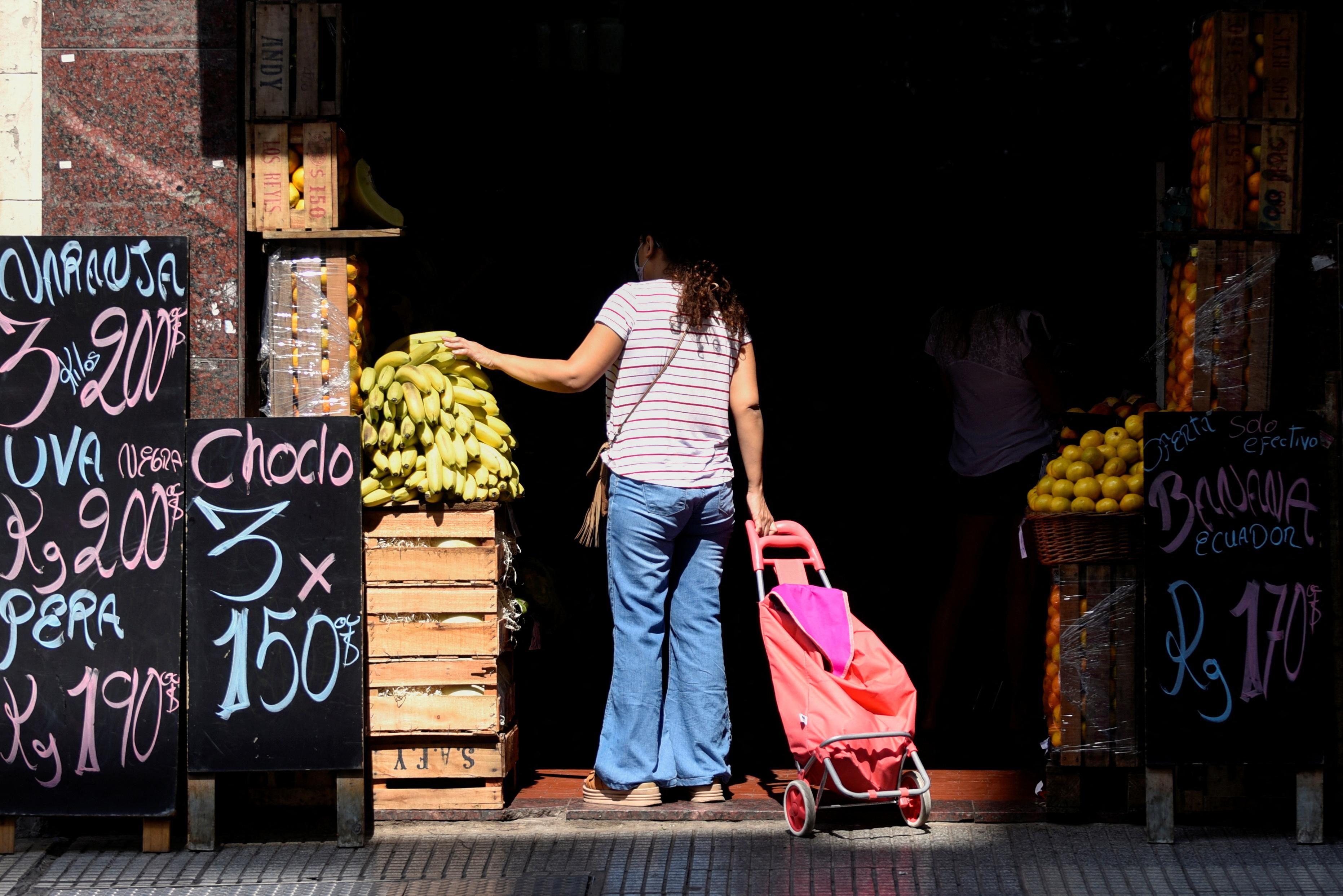As inflation nears 100% in Argentina, the political class struggles to respond
Though much of the world is suffering from uncomfortably high inflation as economies adjust to the disruptions brought by the pandemic and the war in Ukraine, some countries are grappling with double- or triple-digit price increases. In Argentina, for example, a rapid acceleration of price gains in recent months has economists predicting inflation will reach 100% this year.
We asked Eurasia Group expert Luciano Sigalov to explain the runaway price increases in the South American country and how political leaders are responding to them (or not).
How did we get here?
This is not Argentina’s first bout of very high inflation. The last was in the late 1980s, when inflation topped 4,000%. After a period of price stability in the 1990s, inflation began to accelerate again in 2005 and then skyrocketed over the summer. Prices rose at an annual rate of 83% in September, one of the highest in the world.
Argentina’s longstanding practice of having the central bank print money to finance public spending is the main driver of inflation. More money chasing the same amount of goods bids up prices. Currency depreciation is another driver, because it raises the cost of imported goods, something that is particularly dangerous during a period of high global inflation.
A couple of things happened over the summer to spark a run on the Argentine peso.
What happened?
Earlier this year, Argentina reached a deal with the IMF to refinance a $44 billion loan it received from the multilateral lender in 2018. But in June, concerns started to mount about the country’s ability to comply with the terms of the deal – such as the reduction of the country’s wide budget deficit – prompting investors to sell off the peso. The July resignation of Economy Minister Martin Guzman, the main architect of the IMF agreement, further fueled the sell-off.
How is soaring inflation affecting everyday life?
As prices adjust from one week to the next, a trip to the supermarket has become a surreal experience. People are losing their sense of what things cost and are becoming adept at financial calculations to determine the value of installment plans for purchases. As the pesos in their pockets rapidly lose value, people try to spend them as quickly as possible. This dynamic makes financial planning, and life planning, that much more difficult.
How has President Alberto Fernandez’s administration responded?
To shore up confidence in the local economy and currency, new Economy Minister Sergio Massa has reiterated the country’s commitment to meeting the terms of the deal with the IMF. He is also rolling out a series of measures freezing the prices of key items and offering households targeted relief in the form of subsidized interest rates, tax cuts, and support for inflation-indexed wage deals.
Yet the crisis has created divisions within the administration. Massa wants to prioritize measures to fulfill the terms of the IMF deal, while the powerful Vice President Cristina Fernandez de Kirchner wants more price freezes and government handouts. And no one really has the stomach for the type of broad stabilization program economists say is necessary but that would include politically unpopular measures such as aggressive interest rate hikes and cuts in public spending.
What does this mean for the ruling coalition ahead of next year’s elections?
Soaring inflation and bleak economic prospects spell trouble for the ruling coalition in next October’s elections. Maximo Kirchner, a lawmaker in congress and son of the vice president, reflected the somber mood taking hold among the parties of the coalition when he suggested recently that they lacked a competitive candidate to run for president next year. He said that neither Fernandez de Kirchner nor Massa, thought to be strong potential contenders, would be running, and he played down President Fernandez’s reelection prospects.
So, does the opposition offer some hope of a solution to the current difficulties?
Curiously enough, the troubles of the ruling coalition have led to increased tensions within the opposition alliance. The Together for Change coalition has three potential presidential candidates jockeying for position, and there are growing difference among them over electoral strategies and post-electoral policies.
At this point, the opposition has strong incentives to remain united to ensure as broad as possible appeal in next year’s elections. But the deeper the problems of the ruling coalition grow, the more confident the main opposition presidential hopefuls might become about prevailing on their own, without the support of their alliance partners. That could lead to a weaker opposition-led administration, with less support in congress, making politically costly policy changes more difficult.
